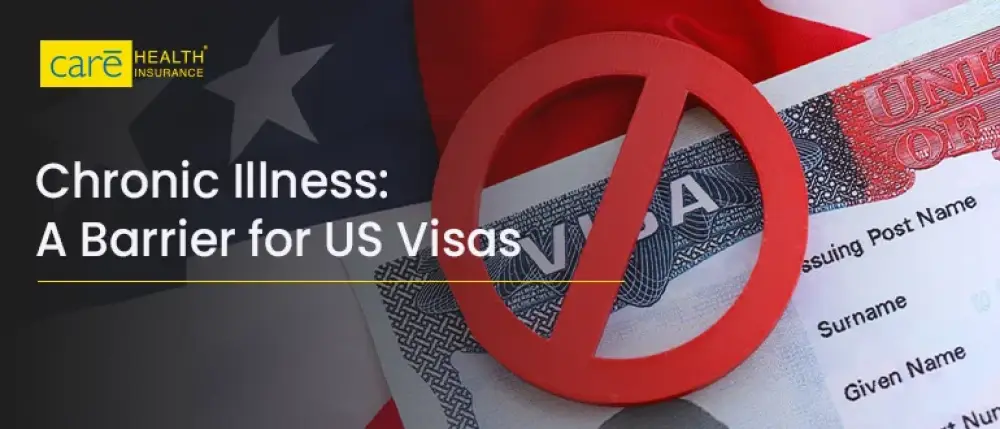Could a common health condition become a reason for visa denial? The US is now closely examining medical issues, raising concerns. Find out how your chronic illness could impact your visa dreams.
What’s the New Rule?
The US Department of State has released new guidance to its embassies and consulates worldwide. It instructs visa officers to examine applicants' health as well as standard immigration criteria.
According to the rule, visa applicants with chronic conditions, such as diabetes, heart disease, and more, may be denied entry. This is the case if officials think the applicant could become a long-term financial burden.
The policy expands the "public charge" assessment to consider not just age, employment, or assets, but also health conditions that might require "hundreds of thousands of dollars' worth of care."
Which Conditions Are Under the Lens?
The guidance clearly mentions cardiovascular diseases, respiratory diseases, cancers, diabetes, metabolic diseases, and neurological and mental health conditions. It also highlights obesity, because of its connection with sleep apnea, asthma, and high blood pressure, as a condition that may increase risk.
Who is Most Likely to be Affected?
Although the guidance technically applies to all visa categories, immigration lawyers and experts say the main impact will likely be on applicants seeking permanent residency (green cards) rather than those applying for short-term non-immigrant visas.
For example, Indian nationals applying for immigrant visas or adjustments of status may face more scrutiny, especially if they have conditions like diabetes or obesity.
What are the Implications?
This rule indicates several implications for people of different age groups and occupations. Let's discuss how:
- For applicants: Having a chronic illness may present an additional challenge. Applicants must show that they and their dependents can support themselves financially and medically without depending on US government programs.
- For sponsors or employers: Visa sponsors or employers may need to consider medical cost risks and provide stronger proof of financial support or insurance.
- For older or medically vulnerable applicants: This move by the Trump Administration may disadvantage those whose health or dependents' needs raise long-term cost risks.
>> Read More: U.S. Increases Fee to $100,000 on New H-1B Visa Petitions
Does the Rule Apply to F1 Students?
While the guidance includes all visa types, immigration experts believe the real impact is likely greatest for those seeking permanent residence. As of now, it technically applies to all visa applicants, including those seeking non-immigrant visas for tourism (B-1/B-2) and studies (F1). Still, it is expected to be mainly used for those looking to live in the US permanently.
Student applicants usually show that they plan to return home. They often already have travel insurance for their stay, which works against being seen as a “public charge.”
Overall, this move represents one of the most significant expansions of health-related criteria in U.S. visa decisions in recent decades. It puts health and financial independence at the centre of these decisions. Anyone with a chronic illness who plans to study, work, or move to the U.S. needs to prepare and document carefully.
